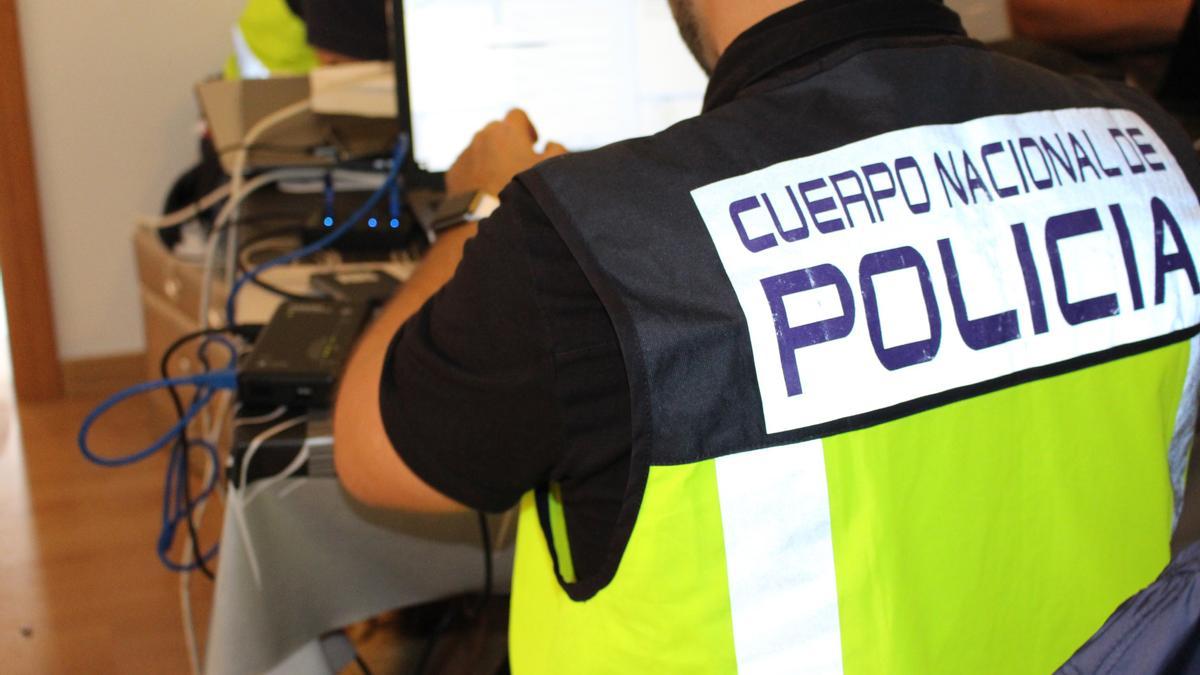The network was led by a minor who had created computer tools to carry out their operations
The National Police have arrested 25 personas in Cádiz, Málaga and Barcelona, eight of whom have entered prison, in the dismantling of a network that operated throughout Spain and that defrauded in two months more than 350.000 euros to 200 internet banking customers.
In a press release sent this Sunday, the Police reported that the network was led by a minor that he had created computer tools to carry out the scams (false bank websites or links to send SMS messages or emails to the victims) and also sold them to other criminal organizations for them to exploit.
In addition to the leader of the group, who has entered a center under a closed regime, 24 people have been arrested in Cadiz, Malaga and Barcelonaof which eight have entered prison.
The group impersonated the image of 18 banking entities and the agents intervened the alleged criminals listed with full names, identity document (DNI) and private banking access codes of more than 100,000 bank customers, ready for use.
The data of his victims, says the Police, were obtained through techniques of ‘phishing’, ‘smishing’ y ‘vishing’ and they called them posing as bank employees, to solve a supposed security breach and asked them for a code that enabled the detainees to carry out fraudulent transactions in their favor.
To receive the scammed money, the alleged criminals opened fraudulent bank accounts with data from people obtained through pages for the sale of items between individuals, who were tricked into sending them a copy of their ID on the pretext of formalizing the purchase.
The Police also carried out six searches involving two simulated firearms, 10.000 euros, lists with the personal data of 100,000 people, more than thirty mobile terminals and 500 grams of marijuana buds destined for small-scale drug trafficking.
The police investigation began as a result of the cyber intelligence activities carried out by the Central Cybercrime Unit together with investigators from the San Fernando Police Station (Cádiz) after detecting a common pattern in different events that occurred throughout Spain.
As a result of this analysis, of the Surveillance, follow-up and different technological research measuresthe agents verified the existence of a criminal organization responsible for these events, explains the National Police in its note.
To carry out the scams, the group was sending mass text messages (technique known as ‘smishing’) in which they warned the victims of an alleged illegitimate interference in their online banking.
The message included a link that redirected to a fraudulent website, similar in appearance to that of the bank, created and controlled by the organization to obtain the victim’s bank details.
The scammers had designed a software that allowed them to see in real time the steps that the victims took and, in order to restore the supposed risk situation of their account and operate safely again, they called them by phone posing as employees of their bank and offered to help them solve that security breach.
Once they managed to materialize the fraudulent transactions and the money entered the bank accounts controlled by the organization, they withdrew the cash at ATMs or contracted instant personal loans, ordered new transfers to other accounts or acquired cryptocurrency at ATMs.
Vehicle sales scams
Data used by criminals to fraudulently open bank accounts and receive the scammed money there They obtained them through pages for the sale of items between individuals.
The criminals contacted motor Vehicle Advertisers, expressing their interest in taking over the vehicle urgently with an advance as a reservation of the purchase and as proof of goodwill.
To formalize the purchase-sale through a alleged agency, they asked the victims for a copy or photograph of the DNI on both sides and once they had the data they victimized these people again: they explained that they were going to send them money through Bizum as a sign for the purchase, but in Instead of sending a payment, they made a request for money from the seller.
The victims did not properly check the message received from the application and they accepted the request with a money transfer in favor of cybercriminals.
